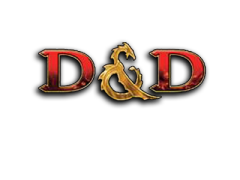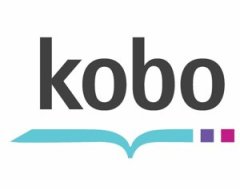
Time goes by so fast by JanetR3, c/o Flikr
A while back, I posted about how we give ourselves permission to procrastinate, and that the excuse of “I don’t have enough time” is a thin one. The moral: you won’t have the time until you make the time. So I thought it would be nice to follow up today with how you can do just that.
I used to be a House Manager at a live theatre company–essentially, my job was to make sure our patrons were safe and comfortable before the show and during intermission. A large part of it was customer service–but really, the job was all about time management. It was important to learn how to manage my time so that less important things–like making sure the doors are unlocked–don’t take away from time spent on issues like getting change to the bar, resolving seating issues, and heaven forbid, medical emergencies.
Time Management isn’t just about hitting your deadlines or making sure you have time to complete projects. It’s about making the most use out of the time you have, identifying what you don’t have time for, and knowing what’s most important to get done right now.
And all of this relates to writing just as well as it does House Management, or any other job. Let’s address it in a few simple points:
Prioritization
This is the big one. If you’re focusing on the little things, you’ll never get good at time management. It’s as simple as not knowing where your energies need to go–if you spend all your time on something that doesn’t matter in the larger picture, you’ll find yourself running out of time to complete the big projects. It sounds pretty straight forward, but I’ve found that it takes practice. Most of the time, it’s easy to tell what should get your attention first–but sometimes, it’ll surprise you.
For example, you might think that designing a cover for that book you just started is a long ways off. You still have edits, revisions, formatting. The book cover is the last detail you want to think about when you’re in the middle of your first draft. But really, it’s a crucial thing to think about early on, maybe even before you start writing. The cover is how people are going to find your book, especially when they’re shopping online. You also need to think about branding; your books should all have a similar ‘feel’ to them, so it’s easy for readers to make the connection between your works. If not, it’s easy for them to pass your other books by.
Allocation
Prioritization is how you order your task list; Allocation is how divide that time between tasks. Another common mistake in time management is allocating too much time to a relatively unimportant project, and too much time to something else. I’m really bad at this when it comes to a specific example: research. I love researching things, to the point where I’ll research a topic just for the fun of it with no end result in mind. But when I have a particular story to write, I can get tied up in research enough that I use up time I could have otherwise spent writing–and that’s when I start missing deadlines.
Case in point: I thought it would be interesting for the system of magic in my Tapestry Project to make use of foci. A Mage uses magic by manipulating one of the four elements, but if he has a focus attuned to that element, the magic is more potent. I want to use particular gemstones as foci, and started doing some research into it–and wasted all the time I’d set aside for a couple days. All for a nice bit of “flavour” that ultimately doesn’t have a large impact on the plot. I could have stopped my research short and gone back to it later, and it wouldn’t have made a difference.
The fallacy of allocation is that every part of your project is important–it’s just that some things are more important than others. Research is crucial for a good book, but you need to make time for other things too. Finding that balance can take practice as well, but ultimately, the most important thing is that you write. That should always be your priority, and the majority of your time and effort should be spent on it.
Organization
This one seems like a no-brainer, but it’s really very important. If you’re not organized, you’ll have trouble getting out of the gate. Fortunately, it’s simple to get on the right track–just utilize your resources and play to your strengths.
I’m a “project” guy. I work best when I have a clear goal in mind, and I’m able to set out specific tasks that lead toward that goal. Checklists work wonders for me; as I complete tasks and mark them off my list, I have a real sense of accomplishment which propels me forward. Others may prefer to have a vague outline of what their end game looks like, and work toward it in an organic way. There’s no right answer here, as long as you’re organized. There’s a lot of software out there for this, everything from email clients and electronic calendars to synchronization software and memo pads. Much of it is free. Investigate what you think will work best, try it out, and use it.
Goals and Intent
Again, it might go without saying, but if you don’t have an idea of where you’re going to end up, you won’t have much luck getting there in any timely fashion. You have to start somewhere, but you have to have a destination in mind as well.
The trick here, I find, is to have several very specific goals instead of one vague one. “I want to publish a novel” isn’t going to help you, because there’s so much work that goes into it. “I want to write X number of words each day” is a much better goal because it’s attainable, and it’s measurable. Also–and this is important–it’s something you can change day to day. Having a goal is great, but having a flexible goal is better. Sometimes life happens, and you can’t reach your destination when you thought you could–but that doesn’t mean it can’t change tomorrow.
Intent is also very important. You want to be clear about what you want to achieve; not just what your goal are, but why your goals are as they are. You want to write 5000 words by the end of the week? Fine. Why 5000 words? Why a week? What will you do when you get there, whether you can meet that goal or not? Being clear on the intent behind your goals will help you work towards them because it’s no longer arbitrary, it’s tangible.
Time Management is a big subject, and I won’t pretend to have covered it all here. I’d like to elaborate on this post eventually, with some tips about managing your time–but in all honestly, I’m out of it for this week! We’ll see you Wednesday!





